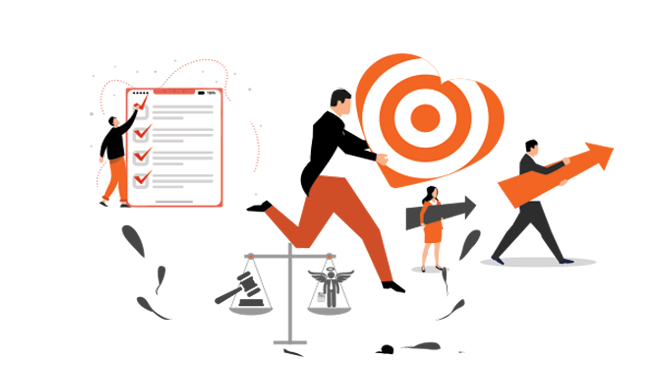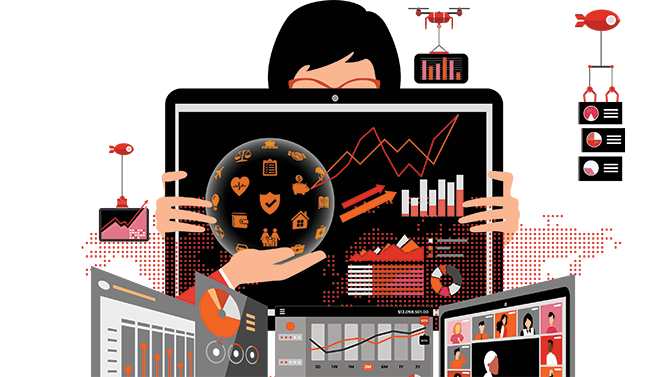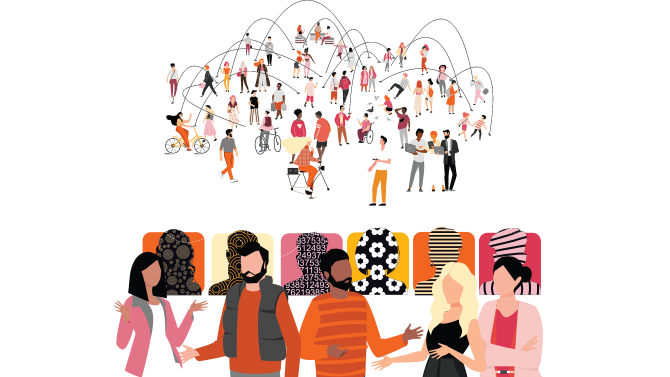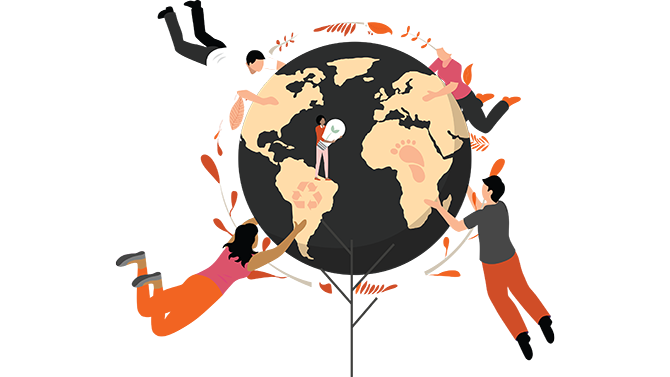Message from our CEO
It is with great pleasure that I welcome you to our 2021 Annual Review. Over the past 18+ months COVID-19 has impacted us all in ways we are still coming to terms with — whether it is the impact on business models, a shift in the nature of work and expectations of our people or the very real and personal suffering that has hit many— whether through loss or the mental health implications of what we have lived through. At PwC, we entered our financial year at an uncertain point in time, where we were anticipating a contraction in our business. It was a point in time where we as partners chose to "double-down" on what makes us who we are - our people. Despite the very real financial challenge we faced, we made it clear from the start that there would be no job losses anywhere arising from COVID-19 and we continued to invest for our future. Our focus was to make it clear that we were all in this together and that together we would face the challenge and come through stronger. Now as I look back at that moment, I am immensely proud of what my partners and our people have achieved, even if I also clearly know that our firm is very lucky to be in the sector it’s in and that many others were impacted much more severely. Financially, we have secured excellent growth across our businesses - landing at a remarkable 5.8% growth in our top-line.
John Parkhouse
At the same time, we have continued to drive our change agenda at pace and scale within the technology space, with record levels of investment both in terms of our client solutions and our in-house transformation. Most significantly though has been our continued focus on our people; as well as rewarding them for their phenomenal efforts with unprecedented bonus levels, we are working towards changing a dynamic that is all too familiar in professional services firms - that of accepting that there will be points in time where we need our people to work very long hours over an extended period of time that is not supportable. With this in mind, we have increased our targeted recruitment for the coming year by nearly 70% with a target of approximately 910 new joiners at all levels - significantly in excess of our growth predictions for the coming year. We know this will not change things overnight, but my partners and I are determined to strive for a healthy work environment for our people where they have the time and opportunity to not only bring quality to our clients, but also to develop and to enjoy a positive work-life harmony.
Looking forward, we are optimistic for the year to come, but our people and our ability to source talent will remain our top priority as we all struggle in an incredibly tight labour market and are forced to look further and further afield for the talent we need. Another key focus for the coming year will be the adjustment of our sustainability strategy as we align to the WEF-IBC guidance issued in conjunction with all the Big Four accounting firms. At PwC Luxembourg, we started our journey several years ago by focusing on key areas where we as an organisation can have a material impact. From the beginning, we looked at our impact through a double lens: on the one hand were our stakeholders (what do they expect from us), and on the other, was the ecosystem we are a part of, the social and environmental challenge which we can positively impact. This was the foundation of the “materiality matrix” that was formed six years ago. It was and remains— in our view—the only way to deliver on our purpose: to build trust in society and solve important problems.
Last year, we decided to align our materiality matrix to the work performed by the World Economic Forum (WEF), namely, “Towards Common Metrics and Consistent Reporting of Sustainable Value Creation”, which assembles, with the support of the International Business Council (IBC) and the Big Four, a set of commons metrics at the heart of long-term value creation. The strong alignment we found last year between our initial materiality metrics and the common metrics proposed by the WEF-IBC, as well as the commitment PwC Global made to apply the WEF-IBC framework, led us to the decision to fully align to the 21 core metrics from the WEF-IBC framework as from this year’s Annual Review.
In this report, we address the four fundamental dimensions the framework seeks transparency on: our Principles of Governance, our Prosperity, our People and our commitment for the Planet (the so-called “4Ps”). These four pillars are interconnected. They are part of the foundation of who we are, what we do and how we do it, in order to play a role in the ecosystem we are part of. One of the key tangible elements illustrating our commitment in taking our part in building a more sustainable future is the creation of our Sustain@PwC Board, which will help coordinate and drive execution of our Sustainability strategy across all dimensions. A key part of this is our Net Zero ambition, which forces us to become part of our global commitment to achieve Net Zero as a network by 2030.
To close, I would add that in business and as a broader community, we are at a pivotal moment for society as a whole. We are witnessing major shifts shaping and transforming the world. Technological disruption, climate change, social tension and the continuous effects of the COVID-19 are but a few. Of course, many of these changes have been either discussed or initiated for a number of years, but there is a new sense of urgency. What this calls for is a new approach. As a service firm, we have a unique opportunity to help organisations build trust and deliver sustained outcomes, which is the premise at the heart of the PwC network’s vision, The New Equation.
The New Equation is based on analyses of global trends and thousands of conversations with clients and stakeholders. It builds on more than a decade of sustained revenue growth and continued investment. The New Equation focuses on two interconnected needs that clients face in the coming years. The first is to build trust, which has never been more important, nor more difficult. The second is to deliver sustained outcomes in an environment where competition and the risk of disruption are more intense than ever and societal expectations have never been greater.
We are at an exciting whilst at the same time daunting moment for professional services firms and for business more generally. The expectation for us to really make a difference and be seen to make a difference is critical if we wish to remain relevant. And for those that succeed, the opportunity is immense, not just in business terms, but in contributing to the sustained success of society more broadly. Taking the words of our Nation’s Branding - “Let's make it happen”!
Thank you for your trust, stay safe, and I wish you a pleasant reading.
Our materiality topics
The world is changing at an unprecedented pace and businesses are under greater pressure to create long-term value for all its stakeholders. The World Economic Forum (WEF), the International Business Council (IBC), PwC and other services firms collaborated for the identification of priority universal metrics to help corporates of all sizes and from all sectors create long-term value and enable them to have more consistent and comparable reporting for their stakeholders, including investors. The WEF-IBC framework is built on 21 core metrics and 34 expanded metrics that define and focus on the world’s most pressing sustainability issues that should be addressed by all businesses.
In January 2021, PwC became one of the first organisations to publicly endorse the World Economic Forum’s (WEF) Stakeholder Capitalism Metrics, and we at PwC Luxembourg aimed to align with the Global Network. To do so, we re-designed our sustainability strategy based on the WEF-IBC Stakeholder Capitalism metrics. We conducted a first materiality assessment of the 21 core metrics and identified 13 metrics which are a priority to us. These 13 topics form the basis of our new sustainability strategy and agenda to integrate sustainability at the core of our business and transform our operations. As we continue to develop our sustainability strategy, we plan to align with the remaining core metrics that we consider material to our business. We will also widen our scope and take into account the expanded metrics from the WEF-IBC framework.












